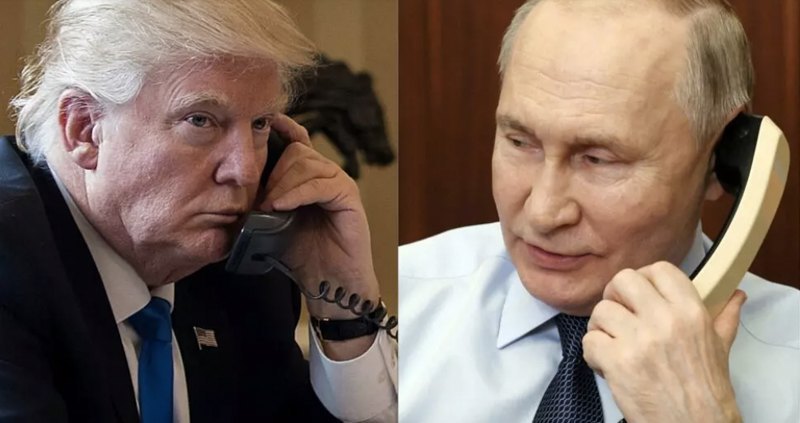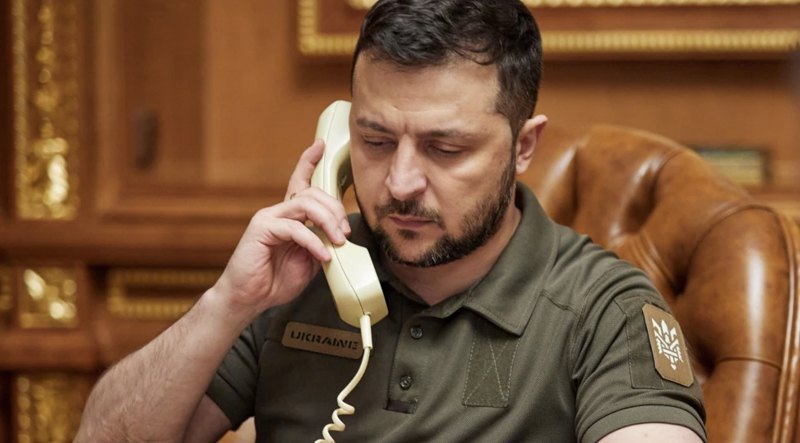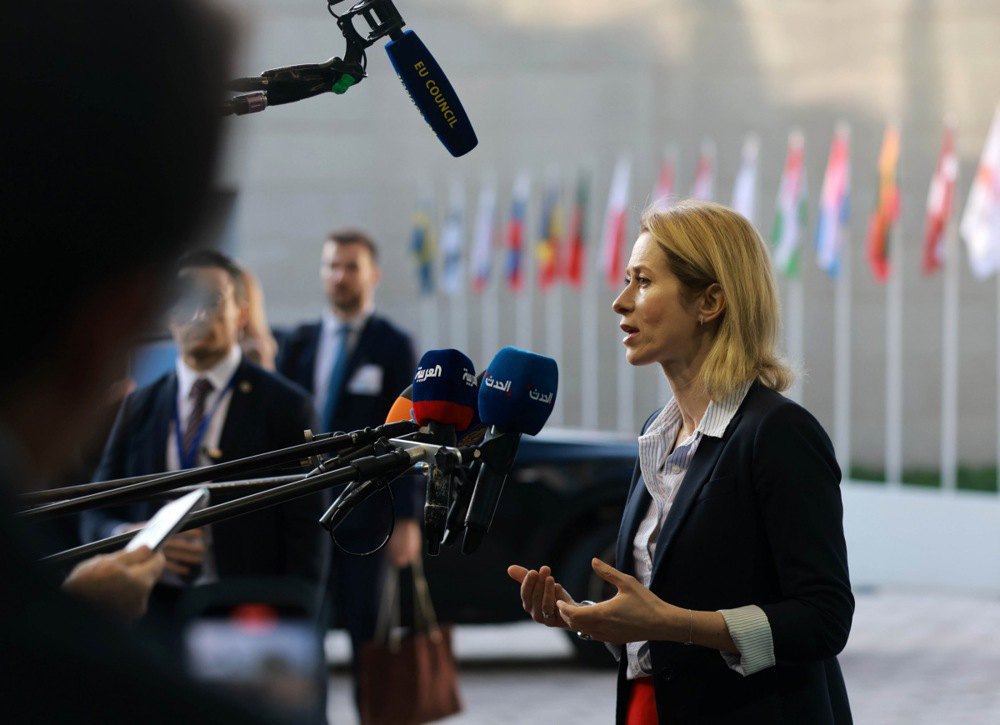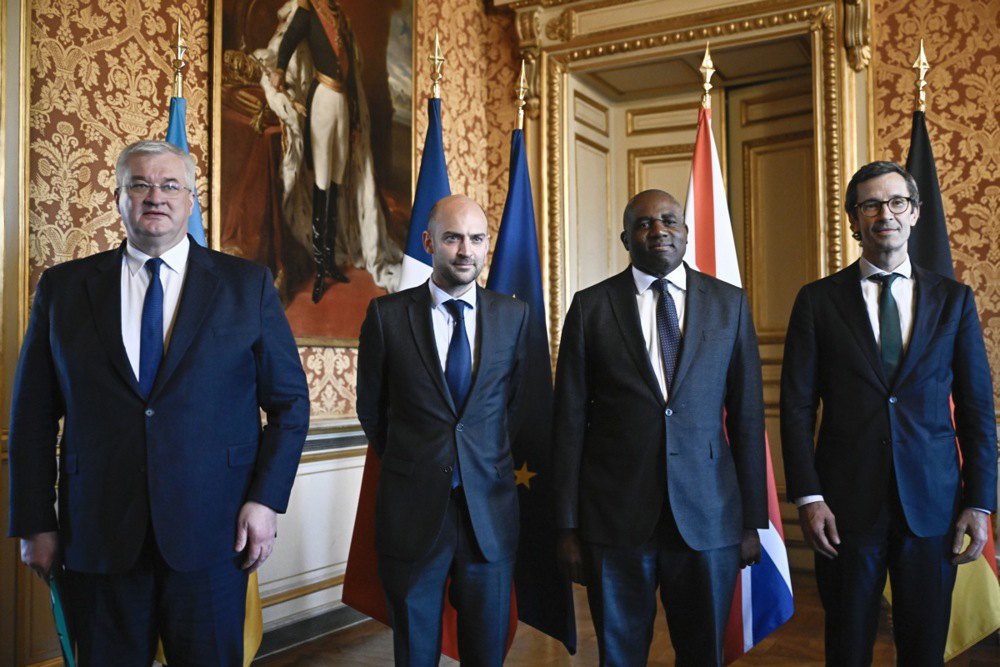Just a week and a half ago, the US President – in unison with other Western leaders – threatened to introduce new “crippling” sanctions on Russia if it failed to agree to an immediate ceasefire.

However, speaking to journalists on Monday, Trump made it clear that he has no intention of introducing further sanctions or toughening existing ones against Russia. According to him, this should not be done because “there is a chance for progress in the negotiations” and new restrictions “will make things much worse”. Trump also noted that there are “very big egos involved in resolving the war in Ukraine” – but he hopes that “something will work out”.
Moreover, in his post after his conversation with Putin, Donald Trump said that "Russia wants to do massive TRADE with the US when this catastrophic bloodshed is over", and he agrees. "There is a huge opportunity for Russia to create a lot of jobs and wealth. Its potential is limitless," Trump stated, adding that "Ukraine can also be a great beneficiary of trade as it rebuilds its country."
By the way, Putin, commenting on his conversation with Trump, did not mention any immediate talks with Ukraine. According to Putin, Russia is ready to work with Ukraine on some kind of "memorandum" on a possible future peace agreement, which would include "a possible ceasefire for a certain period of time if certain agreements are reached". He also reiterated that Russia's main goal remains to eliminate some "root causes of this crisis". No one seems to know for sure what kind of "memorandum" he is talking about, or where this idea came from, except perhaps Putin himself.
‘Forcing Russia to peace’ – Zelenskyy’s version
President of Ukraine Volodymyr Zelenskyy clearly disagrees with the notion that sanctions against the Kremlin would hinder “progress in the negotiations”. “If the Russians are not ready to stop the killings, there should be stronger sanctions. Putting pressure on Russia will encourage it to real peace – this is obvious to everyone in the world,” Zelenskyy stated, referring to Monday’s conversation with his American counterpart. The Head of State also reaffirmed that Ukraine remains prepared for direct talks with Russia in any format that may produce tangible results – and is considering all potential platforms.

Summarising Monday’s talks with Donald Trump during a conversation with the media, Volodymyr Zelenskyy suggested that one of the possible formats for negotiations with Russia could involve representatives of Ukraine, the United States, the European Union and the United Kingdom. Such a meeting could take place in Turkey – where Ukraine and Russia held discussions last week – in the Vatican, which has offered itself as a potential host for Kyiv and Moscow, or in neutral Switzerland. “We are considering these three venues. All three countries are good – I do not want to say which one is more comfortable. The question is not about comfort – the question is who will be able to organise it with an appropriate result after the meeting,” Zelenskyy said.
‘Fears’ in European capitals
The Financial Times, in a separate article on the same subject, reports – citing a person familiar with the conversation – that European leaders were “stunned” by the US President’s account of his agreement with Putin.
“In European capitals, leaders fear that Trump could cut a deal with Putin by agreeing to his maximalist demands and sell out Ukraine’s interests in his rush to end the fighting,” the newspaper wrote.
If European leaders were indeed stunned, they recovered swiftly.
On Tuesday, 20 May, the EU approved its 17th package of sanctions against Russia. The EU’s High Representative for Foreign Affairs, Kaja Kallas, announced that more than 200 vessels of Russia’s so-called shadow fleet were now targeted.

Commenting on the package, the Head of the President’s Office, Andriy Yermak – who is co-developing restrictive measures within the Yermak-McFaul sanctions group – stated that it includes comprehensive actions targeting schemes to circumvent export controls. The newly planned restrictive measures apply to 17 more individuals and 58 legal entities. In total, 342 vessels have now been subjected to restrictions.
The sanctions also cover Russian military structures involved in the use of chemical weapons against Ukrainians.
In fact, this package of sanctions was announced even before Russia’s unwillingness to agree to a proposed 30-day ceasefire became apparent. The EU is now working on an additional sanctions package, following Moscow’s continued refusal to take steps toward ending the war.
The United Kingdom, for its part, has also announced a wide-ranging package of sanctions against Russia in response to Putin’s refusal to implement a ceasefire.
“As President Putin ruthlessly escalates his attacks on innocent Ukrainians, the UK is piling on the pressure with a range of 100 new sanctions,” the official statement declared.
These 100 new measures target Russia’s military, energy and financial sectors – as well as individuals and entities involved in Putin’s information war against Ukraine.

At a meeting of EU defence and foreign affairs ministers in Brussels on Tuesday, Kaja Kallas called on the United States to act decisively against Russia if Moscow continues to reject a ceasefire. Kallas reminded Washington of its earlier commitment to impose new sanctions under such circumstances.
The EU now expects to see that commitment materialise, Kallas stressed.
Unfortunately, forecasts regarding Washington’s fulfilment of its promises remain largely pessimistic. According to Western analysts, Moscow is likely to delay serious negotiations for as long as it believes its forces might achieve success in the summer offensive.







